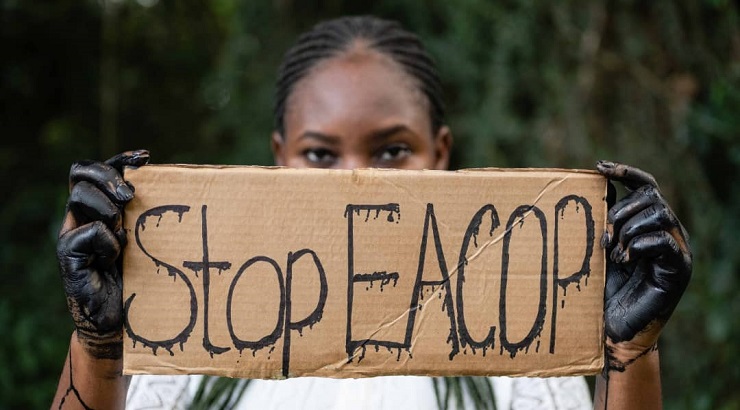Infrastructure
Total in Trouble Over $5bn Uganda Pipeline Project
EU parliament has summoned CEO to Brussels to justify the project.

Global oil giant TotalEnergies is facing huge difficulties in Europe as it pushes ahead with the construction of a pipeline linking Uganda to the Indian Ocean port of Tanga in Tanzania.
The company, which holds a 62% stake in the East African Crude Oil Pipeline (Eacop) project, is being pressured by European Union lawmakers to delay the $5 billion project by one year to address “environmental and human rights concerns”.
The EU parliament recently advised its members, the global community and project stakeholders to “put an end to the extractive activities in protected and sensitive ecosystems, including the shores of Lake Albert”.
The lawmakers also summoned TotalEnergies CEO Patrick Pouyanné to appear in Brussels on Oct. 10 to answer to charges of environmental and human rights abuse.
TotalEnergies, a corporate citizen of the EU, has been facing opposition from environmentalists who have convinced a host of financiers to keep off the project.
Dismissed claims
Uganda and Tanzania have both dismissed claims by the EU parliament that the Hoima-Tanga oil pipeline project violates environmental and human rights standards.
Indeed, Ugandan President Yoweri Museveni has declared that his country will look for alternatives if TotalEnergies obeys the EU parliament.
Ali Ssekatawa, the director of Legal and Corporate Affairs at the Uganda Petroleum Authority, has also dismissed the EU resolution to stop the project saying it is not binding to sovereign countries such as Uganda and Tanzania.
“The progression of our project will go ahead, and even rigs that are needed to extract oil have reached Mombasa, and efforts are underway to bring them to Hoima and Buliisa so that they start operating,” he said.
$10 billion deal
In February, China National Offshore Oil Corporation (CNOOC) and TotalEnergies signed a $10 billion deal to develop Uganda’s energy resources and undertake the EACOP project.
RELATED: Chinese Firm, TotalEnergies Ink $10bn Deal for Uganda Pipeline
The deal came five months after at least 10 banks walked away from the venture terming it an environmental risk that would produce 34 tonnes of carbon dioxide annually.
The walkout meant the pipeline, which was expected to cost $3.55 billion, would cost $5 billion – forcing the shareholders of Eacop to source for more money.
However, executives of TotalEnergies were quick to point out that $2 billion would be financed through shareholders’ equity while $3 billion would come from banks.
Other shareholders of Eacop include Uganda National Oil Company (15%), Tanzania Petroleum Development Company (15%), and China National Offshore Oil Corporation (8%).
Thermo isolation plant
Nine months into the deal, preliminary construction work related to the project is already underway, including the construction of a thermo isolation plant in the Tabora region to fabricate covers for the underground pipes.
At 1,443 kilometres, the Hoima-Tanga crude oil pipeline is expected to be the longest electrically heated crude oil pipeline in the world.
A total of 1,147km of the pipeline will pass through Tanzania and just 296km in Uganda.
The facility will move Uganda’s crude oil from Kabaale, in the western Hoima region, to Chongoleani in Tanzania.
The 24-inch diameter pipeline is expected to move 216,000 barrels of oil per day for $12.2 per barrel. It will be heated to keep the crude liquid enough to flow.














